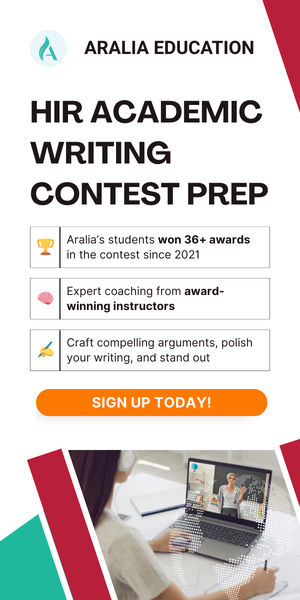When choosing classes in high school, students typically have difficulty making a comprehensive class plan throughout their 4 years. Before reading this article, please refer to our complete guide of creating a 4-year college plan in high school. In the article below, we will provide you with the most comprehensive guide to choosing high school classes while keeping a college application perspective in mind.
Why should you consider your college application when selecting classes in high school?
In high school, you will discover your personal and professional interests by trying out different classes offered at your school while also hopefully earning good grades in these classes. If you’re planning to apply for college, you should choose classes in high school according to the major(s) that you are interested in pursuing in the future. This reflects your passion and ability to make a relevant pre-college to the admission officer.
High School Class requirements at selective American universities
Although application standards are different between all American universities, almost all schools have requirements for core high school classes. So, when it comes to classes in high school, selecting relevant core classes becomes particularly important. Generally speaking, the basic requirements for high school core classes in American universities are:
- English: 4 years
- Mathematics: 3-4 years
- World Language: 2-3 years
- Natural & Physical Sciences: 2-3 years
- Social Studies (including history): 2-3 years
- Art: 1 year
When American college admission officers calculate each applicant’s GPA, they often focus on students’ performance in core subjects. Generally speaking, applicants with four years of mathematics classes, four years of natural science classes, and four years of foreign language classes will have a competitive advantage. These applicants will leave a stronger impression on the admission officers because they knew what they want to study in high school and college.
Sports, music, and other non-core classes are not given as much scrutiny as core classes, but this does not mean that they are not important. The college admissions staff can see from these classes whether a student has a wide range of interests and experiences. However, admissions officers generally do not use non-core classes as a standard when assessing a student’s academic level. Admissions officers from selective universities will also assess whether students took AP, IB, honors, or other advanced classes.
AP classes are classes equivalent to first-year university courses. Better high schools in the United States will provide students with a diverse list of AP class options. High AP test scores not only increase competitiveness in college applications, but will also enable students to receive university credits for these classes.
IB or International Baccalaureate classes are offered at some high schools in the US. Their subject content and difficulty have reached the level of first-year American university courses. Many colleges and universities accept IB credits depending on the IB test scores received or if the IB Diploma was received. Read more about the differences between AP and IB classes.
Honors classes teach students the breadth and depth of topics with a faster learning pace. Honors classes generally lie between regular classes and AP classes. The GPA for these classes is usually calculated higher than the general standard. However, some schools do not calculate the weight of honors classes.
It should be noted that universities that implement the holistic admission model do not require specific classes or electives to be taken in high school. For example, the Yale University admissions website reads: “Yale University does not have any specific class entry requirements.”
Generally speaking, to stand out among the applicants, applicants need to take English, natural and physical sciences, mathematics, social studies, and world language classes every year. In other words, it is difficult for students without a comprehensive set of core classes to apply to selective U.S. universities.
4 suggestions before choosing classes
Before making a decision about class selection, Yale University recommends students ask themselves these questions:
- Am I taking a well-balanced academic program that will provide me with a good foundation for college?
- Am I prepared to take college-level math, writing, and science courses?
- Do I feel challenged by the courses that I am taking?
- Are my courses among the more rigorous ones available to me at my school?
- Am I seeking challenge or avoiding it?
- Overall, is my four-year high school program among the most challenging programs available at my school?
- Gain a comprehensive understanding of each class: Make good use of the various online and/or printed resources provided by the school. Communicate with advisors, teachers, and classmates to fully understand the school’s curriculum, graduation requirements, class difficulty, and the teacher for each class.
- Achievement first: Performance in each class should always be the top priority. The entrance exam results or GPA during the prior school year will directly affect the choice of classes for the next school year.
For example, you might need to achieve a B+ or better in 9th-grade science class in order to choose the Honors class in 10th grade. Similarly, you may need a B or better in your 11th grade Honors history class to take AP history in the 12th grade. The specific requirements vary from school to school and should be discussed with your advisor or college counselor. - Tap your potential: Choose classes based on your interests and academic ability while striving to maximize your potential. Consider taking challenging courses such as honors or AP classes if you feel up to it and believe you can get good grades in them.
- Overall College Prep: Create a College Plan for your four years of high school as soon as possible. The earlier you plan, the more you will understand about high school classes, activities, and their relation to the college/university application and admissions process. This plan is also important for your own personal development.
7 points to consider when choosing classes
Class selection in high school is related to several different areas: the school’s graduation requirements, entrance placement test scores in subjects like math and world languages, the prior year’s class selections and academic performance, input from counselors and advisors, suggestions from parents, as well as each student’s wishes and future plans. The course offerings in high school are crucial when planning for the future. Choosing high school courses and the difficulty levels for each can significantly affect future university selections as well as your professional career direction.
Some key points to pay attention to when making class selections:
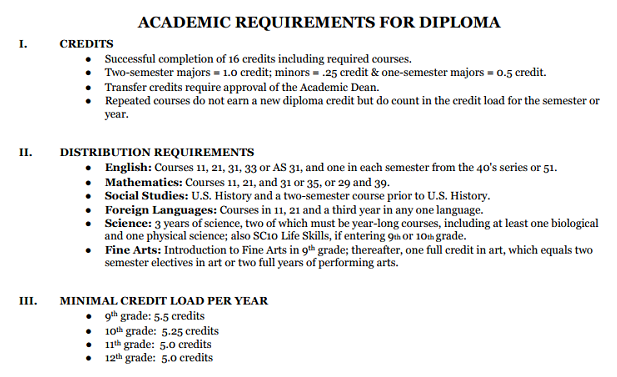
To understand the graduation credit requirements, refer to the official website or academic bulletin of your school. After reviewing this information, you will understand how many credits you need to take for graduation, which classes and how many credits are required in each subject area, and how many credits are required for elective classes. Let’s take the graduation requirements of The Governor’s Academy as an example. You can see the academic graduation requirements of the school through the figure above.
Have in-depth discussions with your guidance counselors, college counselors, or advisors. They are the ones who know the school’s curriculum and university admission requirements best. You should discuss your current situation and future college/university plans with them.
Class prerequisites: For example, some schools require you to study biology before chemistry, or taking psychology before AP psychology. Suppose you want to satisfy the prerequisite without taking a class in school. In this case, you need to take preparatory classes outside of school, pass your school’s tests, or ask for a waiver with the department head to prove your knowledge of the required courses. Each high school will consider waiving prerequisites differently.
Honors and Advanced Placement classes have qualification requirements. Students need to show their academic ability and get approval from the teacher to take these more difficult classes.
You should balance the difficulty of the classes and your workload. Don’t blindly choose all challenging classes, classes with lots of reading, or many classes with lab reports that need to be written during a single semester. If you cannot cope with the workload, your GPA will drop, and you won’t have enough time to participate in extracurricular activities after school.
Understand university preferences for high school subjects. American universities value “well-rounded” students with a balance between the liberal arts and sciences classes taken in high school. Higher education in the United States attaches great importance to each student’s attempts to expand their knowledge, instead of confining their education to specific subjects.
Understand in advance the requirements of your target university major. For example, students who want to study Physical Science or Engineering generally should complete both AP Physics C Mechanics and Electricity and Magnetism. If you want to choose a major requiring a math background, plan to take AP Calculus BC and AP Statistics.
Class selection process
For newly enrolled students, most school advisors will provide you with a suggested curriculum based on your middle school transcripts. If you are confident to take higher-level classes, you should email or discuss with your advisor to understand how to test into or gain placement into these classes.
For students who are already in high school or in their senior year, March and April is the time of year to choose classes for the next school year. The two essential tools you can also use are: the school’s website and the school’s class catalog. Students choose classes based on the credit requirements in each subject, difficulty of classes, and personal interests.
Below are the course selection examples from Phillips Andover School:
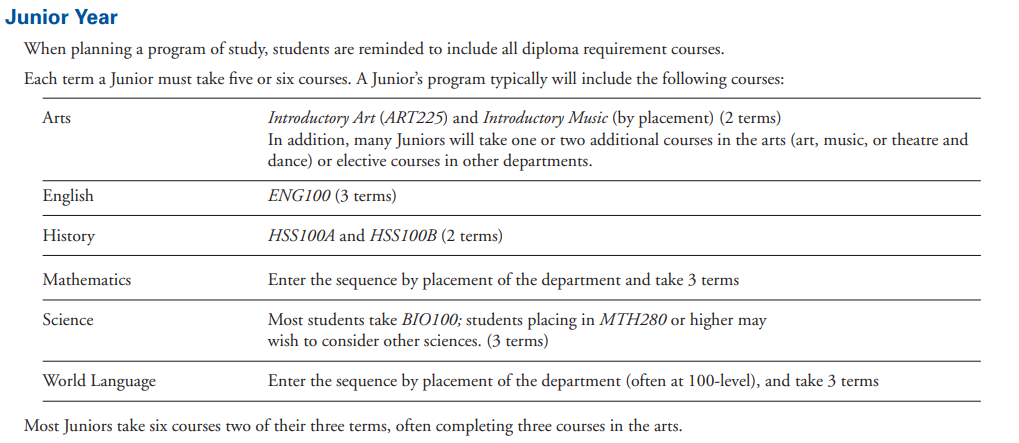
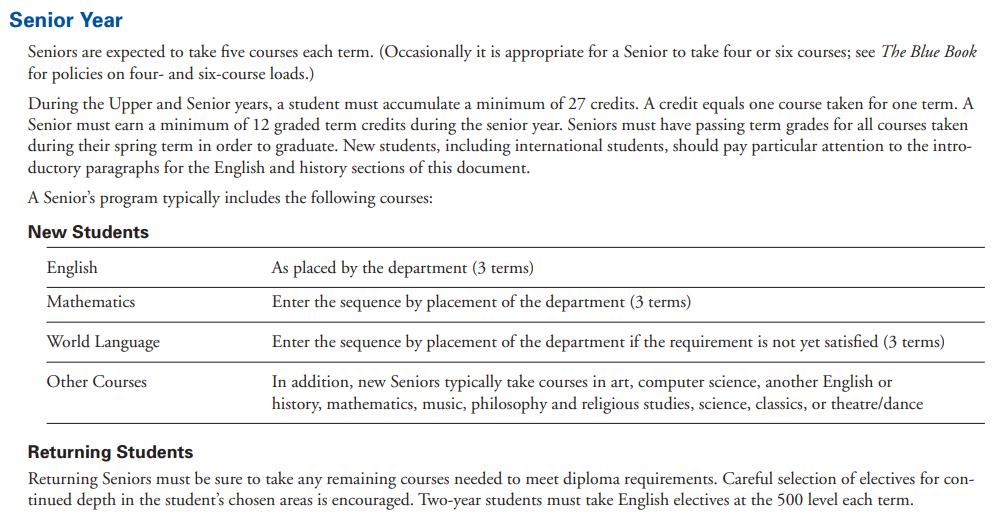
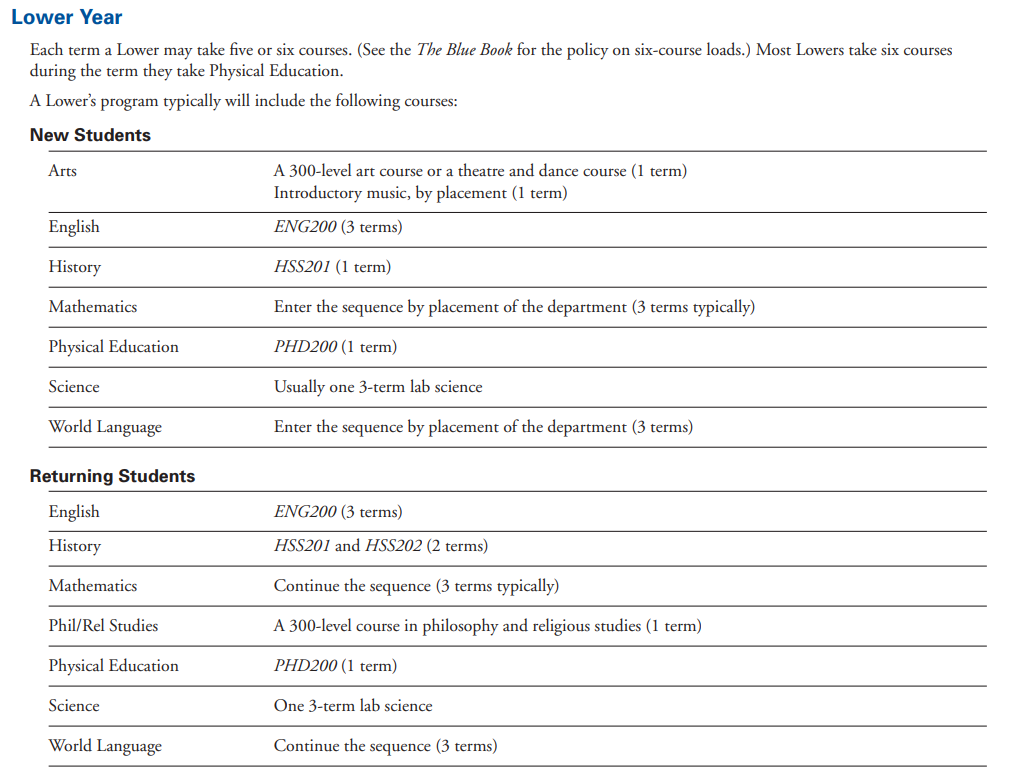
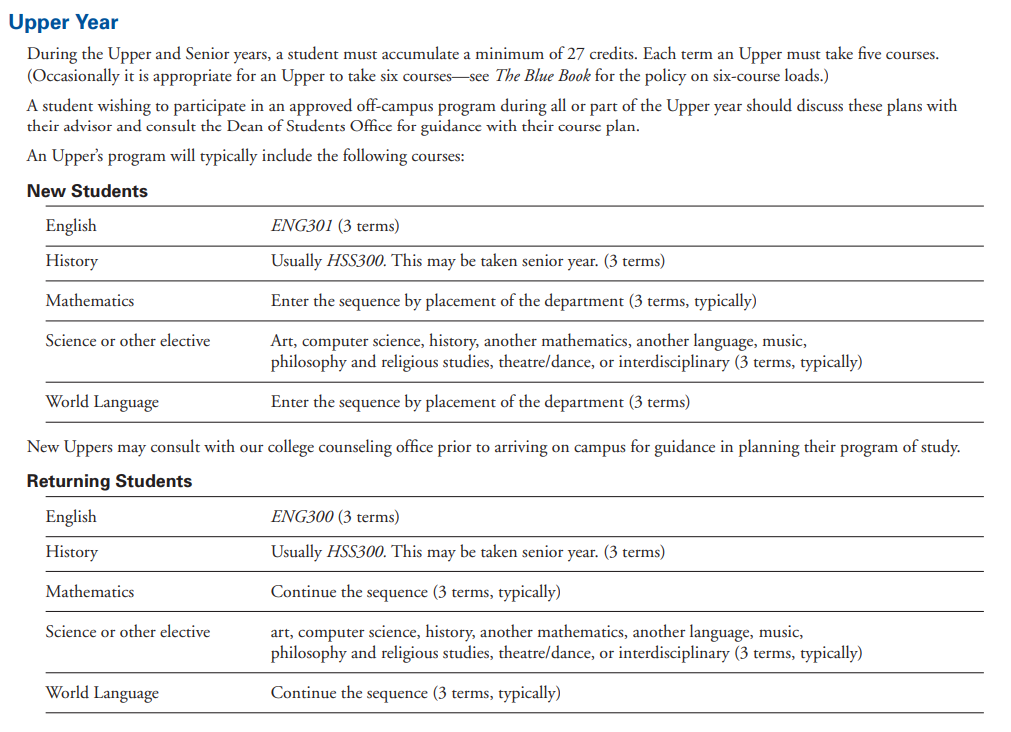
In general, if you plan well in high school, it is not difficult to meet the class requirements for college/university applications. However, applying to top-ranking or selective schools, you must meet the minimum core high school curriculum requirements as well as take more challenging classes while maintaining a good GPA.
Further reading:
- United States Guide: K-12 System
- Guide to the American High School Curriculum – Regular / non-Honors, AP and Honors Classes
- Infographic: International High School Competitions to Boost Your Profile
- How to Create a Four-Year High School Plan for High School Freshmen
- Differences between AP and IB Courses
Aralia Education provides academic courses to improve students’ GPA and provides complete learning plans customized for each student. We will match the most suitable teachers according to the specific needs of each student. Aralia’s teachers fill knowledge gaps according for every student to ensure they can overcome their own shortcomings. After taking classes, students will be able to increase their GPA over the long-term and receive a strong academic foundation for later grades and college applications.








